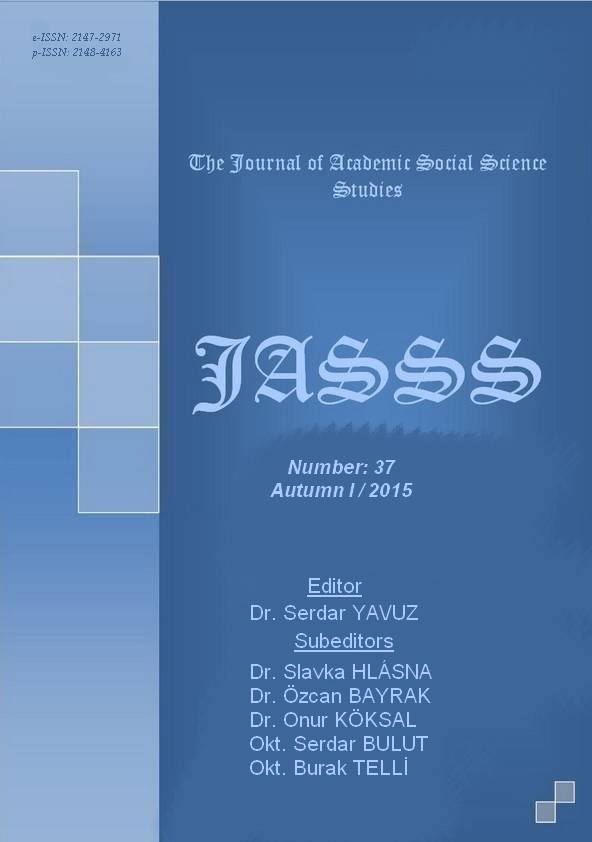Author :
Abstract
Hemen hemen bütün eserlerinde cinsiyet ayrımcılığı, kadına yönelik şiddet, sömürü ve kadının mevcut toplumsal konumunu ele alan Nevâl es-Sa'dâvî, Mısır ve Arap dünyasının en önemli yazarlarından biri olmasının yanı sıra; henüz çocukluk döneminde hem kendi ailesinde hem de yakın çevresinde sık sık gözlemlediği kız ve erkek çocuklar arasındaki ayrımcılığın etkisiyle yirmili yaşlarından itibaren her platformda Arap kadınının haklarını ve kadın-erkek eşitliğini savunan önemli bir aktivist olarak da ön plana çıkmaktadır. es-Sa'dâvî bütün eserlerinde Mısır ve Arap dünyasında kadın olmanın zorluklarını gözler önüne serer ve kadının ikincil plana itilmesinin ve ezilmişliğinin ironik bir eleştirisini sunar. Müzekkirât Tabîbe (Bir Kadın Doktorun Anıları) adlı roman, bir kadın doktorun, kendisi ve ağabeyi arasındaki cinsiyet ayrımı yüzünden yaşadığı psikolojik travmaya odaklanarak çocukluğuna geri dönmesiyle başlar. Kahraman bir yandan toplum, gelenek ve erkeklere karşı bir "benlik" mücadelesi verirken, diğer yandan kadınlığından nefret etmekte ve zayıflığını hor görmektedir. Kliniğinde hayatın trajedileri ve kadınların problemleri ile yüz yüze gelir. Çocukluğunda yaşadığı birçok şeyin bilinçaltında derin izler bıraktığını ve sadece kendisinin yaşadığını sandığı bazı deneyimlerin aslında bütün toplumun "nevrotik" bir rahatsızlığı olduğunu fark eder. Bu çalışmada, romanın teknik unsurlarını içeren yapısal incelemesi yapılarak, özellikle toplumsal cinsiyet bağlamında ön plana çıkan bazı temalar üzerinde durulmuştur.
Keywords
Abstract
In almost all his works, dealing with gender discrimination, violence and abuse against women and the current social position of women, Nawal El Saadawi, one of the most important writers of Egypt and the Arab world as well as being, yet in her childhood, due to observing frequently the discrimination between girls and boys both in her family and in her immediate vicinity, come to the fore as a key activist since the twenties, advocating the rights of Arab women and the male-female equality in all platforms. El Saadawi reveals the difficulties of being woman in the Arab world, and the women being pushed to the secondary plan, and she provides an ironic critique of their oppressions. The novel titled Müzekkirât Tabîbe (Memoirs Of A Woman Doctor) begins with the return of a female doctor to her childhood by focusing on the psychological trauma that she had experienced as a result of the sexual discrimination imposed on herself against her elder brother. The hero of the novel fights for protecting her selfhood against the society, traditions and men on one hand and hates her womanhood and despises her female weakness on the other. She comes face to face with the tragedies of life and the problems of women in her clinic. She becomes aware of the fact that many things that she had experienced in her childhood had left deep traces in her unconsciousness and that some experiences which she had thought were experiences specific to her self were indeed the reflections of the neurotic disorder of the whole society. In this study, by making a structural analysis of the technical elements containing novel, particularly some themes are emphasized coming to the fore in the context of gender.
